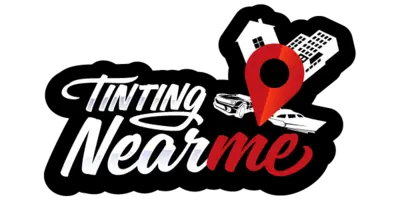How to Get Medical Exemption for Window Tint in Connecticut in 2024
Navigating the legalities, understanding the medical requirements, and submitting the proper paperwork for a medical exemption for window tint in Connecticut can be quite challenging for you. It may seem daunting, but with the right information, you can tackle this task with confidence. The key lies in your ability to secure a certification from an optometrist or physician, and your understanding of the state’s specific VLT and tint darkness regulations. So, how to ensure you’re on the right path without getting tangled in the complexities of the law? Stay tuned to unravel the mystery.
The information on myeyerx.net isn’t legal advice; consider it a starting point. Always verify with local and state authorities, as the final decision rests with you. We are not lawyers. For specific legal guidance, we can refer you to legal experts. Remember, knowledge of both state and local laws is essential, and even law enforcement might not be fully updated. We aim for accuracy but advise double-checking for the latest regulations.
Key Takeaways
Key Takeaways
Key Takeaways
- Consult a healthcare provider to obtain a signed certification for window tinting due to a qualifying medical condition.
- Complete the Application & Special Permit for Exemption from Tinted Window Requirements with accurate details from the certification.
- Adhere to Connecticut’s VLT% requirements and install side mirrors if windows behind the driver are tinted.
- Stay updated with changes in Connecticut’s tint laws to maintain compliance and ensure safety.
Need Help? Our Doctors Are Here For You!
MyEyeRx was established with the objective of simplifying the complex landscape of state regulations pertaining to legal medical exemptions for window tinting. For individuals seeking to navigate these regulations without resorting to a do-it-yourself approach, we offer a streamlined solution. Our team includes qualified medical professionals who are available to conduct consultations via Zoom. These sessions are designed to assess your eligibility for a medical exemption, ensuring a personalized and efficient process for acquiring the necessary documentation.
Qualifying Medical Conditions for Tint Exemption in Connecticut
If you’re grappling with light-sensitive conditions like photophobia, photosensitivity, or even lupus and porphyria, you could qualify for a window tint exemption in Connecticut. The state recognizes specific qualifying medical conditions, granting exemptions based on the individual’s medical necessity and the impact of sunlight exposure on their health.
As you battle conditions like photophobia and photosensitivity, you’re all too familiar with how sunlight can wreak havoc on your vision and overall comfort. These medical conditions can make it challenging for you to drive, especially during bright sunny days. However, Connecticut’s window tint exemption provides a solution, allowing your vehicle windows to be tinted beyond the standard legal limit.
But it’s not just photosensitivity and photophobia that qualify. If you’re living with lupus, you’re aware that sunlight can trigger painful flare-ups and rashes. Likewise, porphyria, a group of rare genetic disorders, can cause skin sensitivity and blisters when exposed to sunlight. In these cases too, Connecticut grants a window tint exemption to reduce sunlight exposure and help manage your condition.
It’s crucial to understand that these exemptions don’t come automatically. You’ll need a licensed physician’s statement or prescription specifying your need for tinted windows due to your light-sensitive condition. This medical proof is a critical step towards getting your exemption.
In short, if you’re dealing with any light-sensitive conditions, it’s worth investigating if you qualify for a window tint exemption in Connecticut. It could significantly improve your driving experience and alleviate discomfort caused by excessive sunlight exposure.
Gathering Necessary Documentation
Now that you’re aware of the qualifying conditions, let’s tackle how to gather the necessary documentation for your window tint exemption. This process revolves around medical necessity, and it requires a certification from either an optometrist or a physician. A crucial step, this certification signifies that your health condition warrants the tint.
Here’s what to do:
- Meet with Your Healthcare Provider: Your optometrist or physician is your first stop. They’re responsible for affirming your medical necessity for the tint. They’ll evaluate your condition and determine if window tinting is, indeed, a necessary accommodation for your health.
- Get the Certification: Make sure your healthcare provider signs and dates the certification. This signed document is your proof of medical necessity. It’s essential to ensure that the certification includes the required VLT (Visible Light Transmission) percentage for the tint. This detail is crucial as it specifies the degree of tinting needed to accommodate your condition.
- Keep a Copy: Once you have the signed and dated certification, make a copy. Keep it safe, as you’ll need it when applying for the exemption.
Applying for Medical Exemption in Connecticut
Once you’ve got your certification, you’re ready to fill out the Application & Special Permit for Exemption from Tinted Window Requirements in Connecticut. This is a crucial step towards getting a medical exemption for window tint in the state. This application process is designed with you in mind, to make sure you can legally use window tint for your medical needs.
Your certification must come from an optometrist or physician who can vouch for your light-sensitive condition. In Connecticut, the medical exemption allows you to use tint film with up to 20% VLT (Visible Light Transmission) on your car windows. This means that, with the exemption, you can have a tint that allows as little as 20% of light to pass through your windows, providing you with the necessary protection against light that may exacerbate your medical condition.
Remember to be thorough while filling out your Application & Special Permit. Ensure all the information is accurate and matches the details provided by your optometrist or physician in your certification. This will ensure your application process is smooth and efficient.
Securing a medical exemption for window tint in Connecticut can seem daunting, but it doesn’t have to be. By following the correct steps and having your certification ready, you can navigate the application process with ease. So, take that first step and fill out your Application & Special Permit for Exemption from Tinted Window Requirements today. Your comfort and health are worth it.
Maintaining Compliance With Tint Regulations
To keep your window tint within Connecticut’s legal bounds, it’s essential that you ensure compliance with the state’s specific VLT% requirements for both front and back windows. This is not just crucial for window tint compliance, but also for maintaining the safety standards set by Connecticut window tint laws.
For any special window treatments you may have, especially those related to a medical exemption, you must secure certification from an optometrist or a physician. This optometrist certification substantiates the need for this exemption, helping you meet medical certification requirements set by the state.
It’s also necessary to follow specific guidelines when it comes to your vehicle’s side mirrors. If your vehicle’s windows behind the driver are tinted, installing side mirrors becomes obligatory. This not only aids in maintaining tint regulations but also ensures your safety on the road.
Remember, it’s your responsibility to adhere to reflection regulations as well. In Connecticut, the tint shouldn’t reflect more than:
- 21% on front side windows
- 27% on back side windows
Failure to comply with reflection regulations can result in penalties and fines.
Lastly, stay informed about any changes in tint laws in Connecticut. Laws can change, and as a responsible citizen and driver, it’s your duty to stay updated to continue maintaining compliance with these regulations. By following these guidelines, you can enjoy the benefits of your tinted windows while staying within the legal confines of Connecticut’s tint laws.

Don't want the hassle? Let us take care of your exemption for you!
MyEyeRx.net is here to help you streamlines the process of obtaining a medical exemption for window tint online. Explore our services to easily transform your window tint from non-compliant to legally approved!
Because of the differences in each of the 50 states, we’ve crafted distinct guides for securing window tint medical exemptions for each of the individual states.

Toriano (Tory) Dewberry
Become one of the many satisfied clients Toriano has assisted in obtaining a medical exemption without stepping out of their homes. Click the button below to begin and discover if you're eligible for a medical exemption.

Toriano (Tory) Dewberry
Become one of the many satisfied clients Toriano has assisted in obtaining a medical exemption without stepping out of their homes. Click the button below to begin and discover if you're eligible for a medical exemption.
Frequently Asked Questions (FAQ'S)
Can a Cop Pull You Over for Tint in Ct?
Yes, a cop can pull you over for tint in Connecticut. Officers are trained in tint detection methods and have the discretion to stop you if they suspect a violation. Clarity about tint legality is crucial to avoid potential penalties. Dark tint can raise safety concerns, leading to traffic stops. Remember, law enforcement’s interpretation and enforcement of tint regulations are strict. Understand your vehicle search rights to navigate these scenarios.
Is 20% Tint Illegal in Ct?
Yes, in Connecticut, a 20% tint is generally illegal for front side windows. The CT tint restrictions require your front windows to allow more than 35% of light transmission. It’s important to understand tint laws for tinting vehicle windows, as non-compliance may lead to law enforcement action. These car tint guidelines aim to ensure safety and visibility. Always consider the legal tint limit in your vehicle customization rules for your own safety.
What Medical Conditions Qualify for Window Tint in Tn?
In Tennessee, you can get a medical exemption for window tint if you have certain conditions. These include skin issues like porphyria and other light-sensitive disorders, as well as visual impairments. You’ll need a doctor’s certification to prove your medical need. Remember, these laws are crafted to accommodate your dermatological or eye health concerns, while ensuring patient privacy. So, tint away, but don’t forget the necessary medical documentation!
What Are the Reasons for Tint Waiver in Nh?
In New Hampshire, you’d apply for a tint waiver if you’ve got a condition like sun sensitivity or photophobia. Understand the tint regulation and start the waiver application process with your doctor’s help. They’ll provide the necessary medical documentation. Remember, it’s a balance of privacy vs. safety and the necessity of tinting versus visibility concerns. Be aware of state-specific laws to avoid legal consequences. Each case is reviewed individually.

MyeyeRx.net
Ensuring your tint is not just about style, but legality and safety.
Let us guide you through the maze of state regulations to legal clarity.

Conclusion
So, you’re on the road to legally scoring that sleek window tint in Connecticut. Remember, it’s not just about style, it’s about health too. Gather your medical documents, fill out the necessary paperwork, and ensure your tint meets the state’s regulations. Like a well-oiled machine, keep everything in check to smoothly ride along in your medically exempt, tinted ride. After all, navigating this process is just another journey on life’s highway.
Looking to find a Reputable Window Tint Company In Connecticut?
Checkout Tintingnearme.com to Find A Local Tint Shop
After learning about window tint laws, the next step is to find a trusted local window tinting shop. Tinting Near Me offers a selection of reputable shops knowledgeable in both quality tinting and legal standards, including medical exemptions.
Choose a shop from their list for expert service that meets legal requirements and enhances your vehicle’s compliance and protection.


